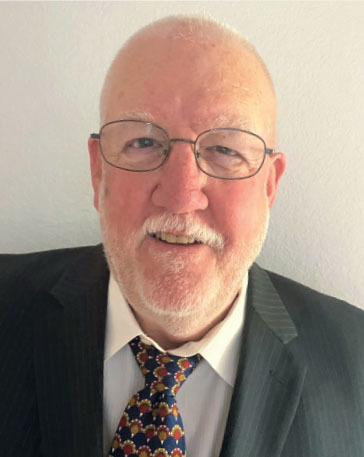May/June 2017
On Ethics
Winning Entry Becomes a Winning Lesson
NSPE member Daryl Armentrout, P.E., recently learned firsthand how questions of engineering ethics don’t always have crystal-clear answers—and how NSPE’s annual ethics contest can be an excellent learning tool for engineering students.
Armentrout, of Knoxville, Tennessee, was the winner of NSPE’s 2015 Milton F. Lunch Ethics Contest. But when his winning essay was published in the July/August 2015 issue of PE magazine, he found out that others had different opinions about his conclusion.
The contest scenario, which contestants are asked to solve, focused on a conflict of interest. It involved an engineer who is serving on a county development agency that is working with the county in a joint-funded site development study for a business park. The county is considering a proposal from the firm co-owned by the engineer; the firm has performed previous development work on the property being studied by the county. The engineer recuses himself from discussions and decisions related to the site development study. The question: Is the engineer’s recusal ethically sufficient?
In his essay, Armentrout wrote that the engineer should go even further and resign from the county development agency. “I based my decision on two things,” Armentrout said in an interview. “It was a degree of how much influence the engineer had with his firm and the agency. Even if he had recused himself, that influence would have still prevailed.”
Other members disagreed. In a letter printed in the November/December 2015 PE, Past President Brad Aldrich, P.E., F.NSPE, said the engineer’s disclosure and recusal was reasonable and met the standards set by the Code of Ethics. He emphasized that in smaller and more rural states, the pool of professional volunteers to serve on professional boards is limited.
NSPE member John Hall, P.E., F.NSPE, wrote a letter (May/June 2016 PE) to share his agreement with Aldrich that a narrow definition of conflicts of interest will eliminate engineers from critical public policy decisions.
Armentrout believes that both Aldrich and Hall offered valid points.
As a retired Tennessee Valley Authority engineer and an adjunct lecturer, Armentrout gives an annual lecture on ethics at ASCE student chapter meetings at the University of Tennessee. He encourages the students to study the NSPE and ASCE codes of ethics, in addition to the NCEES rules of professional conduct, to help them prepare for the FE exam.
The debate over Armentrout’s winning essay became a teachable moment. During a “You Be the Judge”-style ethics workshop in March, Armentrout presented the case, his arguments, and the counterarguments.
“I thought it was good for them to see that my opinion was reviewed by the Board of Ethical Review and they determined that it was the best submittal,” says Armentrout. “But this case shows that even among professional peers there’s not always an agreement on what’s an appropriate course of action.”


 Volunteering at NSPE is a great opportunity to grow your professional network and connect with other leaders in the field.
Volunteering at NSPE is a great opportunity to grow your professional network and connect with other leaders in the field. The National Society of Professional Engineers (NSPE) encourages you to explore the resources to cast your vote on election day:
The National Society of Professional Engineers (NSPE) encourages you to explore the resources to cast your vote on election day:



